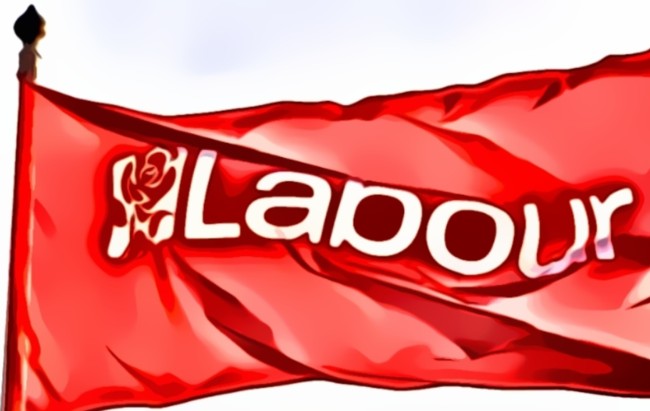Be warned: leaked report on Labour factionalism still makes dangerous assumptions on anti-Semitism
The revelations about allegations of anti-Semitism in the Labour Party being ignored by paid officers have been shocking – but we should not take the report that provided this information entirely at face value; it makes assumptions that party members were anti-Semitic without evidence to support the claim.
And it asks us to believe that changes in party policy have made it better at identifying anti-Semites, when it could be argued that it is simply better at expelling anybody who has been accused.
The problem is that, while criticising a right-wing faction for ignoring accusations and letting them pile up, to create an impression that Labour was doing nothing, the report seems to accept that all the accusations were true. It certainly accepts the claims by the right-wingers in the Governance and Legal Unit that the accused members were anti-Semites without question. Why?
Consider this passage:
“In 2015, the membership of the Labour Party was about 200,000 and then suddenly more than doubled, with many of those joining with a desire to elect Jeremy Corbyn following the 2015 General Election defeat. In 2016, it grew again to well over half a million, as many members joined to participate in the 2016 leadership election. At its height Labour Party membership was almost 600,000, or roughly 1% of the British population… Some of those who joined expressed antisemitic views, sometimes framed in terms of support for the Palestinian people, but incorporating traditional tropes about Jewish power/influence. The explosion of social media has given these (and other) unacceptable views far greater exposure than they would have had fifteen or twenty years ago – what would have been private discussions are now shared publicly. The internet has also contributed to the growth and sharing of conspiratorial theories about a shadowy global elite, often tending towards antisemitism. Ten years of economic and social dislocation have also doubtless contributed to a society much less at ease with itself, and prone to the search for scapegoats. For all these and other reasons, complaints about antisemitism in the Labour Party began to grow from 2016 onwards.”
If these anti-Semites were joining from 2015 onwards, it does not make sense that complaints about anti-Semitism only began to grow from 2016. Why not immediately?
Wouldn’t it make more sense to look for a specific incident that encouraged people to make complaints? In April 2016, the right-wing blog Guido Fawkes published allegations that Labour MP Naz Shah had made anti-Semitic remarks on Twitter during the 2014 conflict between Israel and Palestine known as Operation Protective Edge. When Labour grandee Ken Livingstone stepped in to defend Ms Shah, the factionalists took their opportunity – attacking him (falsely) over his defence and the examples he used. When the Party machine suspended his membership, it was as though a call had gone out: this is how the right discredits the left – we say they are anti-Semites.
There followed a huge campaign of vilification on the social media – I was among its victims. Part of this included attempts to induce victims to pass anti-Semitic comments in response to either questioning about obscure incidents that were not the subject under discussion, or to abuse (as we will see below).
Isn’t it more reasonable to ascribe the increase in complaints to this behaviour by the hostile right-wing faction, supported by aggressive Zionists (both Jewish and Gentile) than to unevidenced claims that the accused were anti-Semites before they joined?
Let’s look at one of the accusations against me. I was said to have exhibited anti-Semitism by saying in response to a comment on This Site, “If Jews in the UK identify with the state of Israel, why aren’t they Israeli citizens?”
I was responding to a commenter calling him- or herself ‘Raffie’, who was replying to my assertion that the EUMC (now IHRC) definition of anti-Semitism was flawed because it confuses the state of Israel with the movement known as Zionism, and seeks to label anybody who criticises either of them as an anti-Semite when it is perfectly possible to do so without wishing harm on Jewish people.
‘Raffie’ suggested: “You’re wrong. Most Jews in the UK identify with the state of Israel in some way.”
I replied: “If Jews in the UK identify with the state of Israel, why aren’t they Israeli citizens? As I understand it, there’s nothing to stop them from signing up.”
I was asking the question to induce ‘Raffie’ and other commenters to provide their genuinely-held opinions – as you can tell very clearly by the fact that, a few hours later, I posted: “How about applying the most simple answer: They aren’t Israeli citizens because they don’t identify with the state of Israel, to anything like the degree required. Possibly because they actually disagree with the actions of the Israeli government.”
I continued: “The point is that these UK citizens don’t identify with Israel to anything like the degree claimed for them.
“In fact, according to the definition of anti-Semitism that you uphold, it is anti-Semitic to suggest that they do: ‘Accusing Jewish citizens of being more loyal to Israel, or to the alleged priorities of Jews worldwide, than to the interests of their own nations.’”
I had delivered a lesson about anti-Semitism to the accusers. But Labour took one sentence, out of context, and used it to claim that I was the anti-Semite. The report appears to accept this behaviour uncritically.
And yes, it mentions “other reasons”, but it should have stated what some of these reasons were. For example: how many of the new members were Tory entryists who joined up to vote for Jeremy Corbyn in the leader elections of 2015 and 2016, because they thought he would be a disaster for Labour? How many of them then put forward anti-Semitic views in a bid to boost the claims that he was making the party a haven for such opinions, when they became known? We know that Tory entryism was an issue because these people posted on the social media, saying what they were doing.
The report states: “The complaints system simply did not function, and the inbox to which complaints were forwarded by other GLU staff would apparently go months at a time without any staff member monitoring it. For the failures during this period, the Party must apologise most profusely to Jewish members and the Jewish community.”
This assumes that the members who had been accused were guilty of anti-Semitism. What is the basis for this belief? The report provides none. Why is there no apology to members who were falsely accused, like myself? The suspension of my party membership continued for more than one and a half years before an NCC committee finally expelled me on false grounds.
The report states: “It should be clarified that there is no suggestion that these shortcomings can be attributed to any antisemitic views on the part of party officials, nor to an unwillingness to oppose their expression. The Party has found no evidence of this. On the contrary, current and former staff members have expressed their disgust at examples of antisemitic attitudes within the party.”
Yet they were happy to allow anti-Semites to remain as party members in order to discredit Jeremy Corbyn. Isn’t that, in itself, anti-Semitic?
And here’s a thought: look at the accusation against This Writer, which we explored above. Weren’t these right-wingers also fabricating evidence of anti-Semitism, to make high-profile Labour members like myself look bad?
Don’t answer that; I’ve got your answer right here, where the report states:
“Staff applied the same factional approach to disciplinary processes. One staff member referred to Emilie Oldknow expecting staff to ‘fabricate a case’ against people ‘she doesn’t like/her friends don’t like’ because of their political views.”
Why is the factionalism treated as a cause for concern, but not the claims of anti-Semitism coming from this faction?
The report goes on to praise changes to the system, mostly brought in after the arrival of Jennie Formby as general secretary, but starting with the recommendations of Shami Chakrabarti, published on June 30, 2016. It states:
“The Chakrabarti Report, released on 30 June 2016, and Jeremy Corbyn’s speech on the same day, provided guidance on a wide range of conduct that was antisemitic and had no place in the Labour Party. GLU largely failed to use this guidance, however, as well as to develop any more in-depth guidance to assist staff decision-making on complaints of antisemitism. Such problems – both managerial and procedural – have since been addressed, ensuring that the mistakes of the past could not be repeated now. These new measures include:
● clear guidelines on processing complaints and a consistent and comprehensive system for logging them;
● a prohibition on staff imposing “informal resolutions”;
● staff conducting thorough investigations into individuals complained about, rather than simply relying only on the evidence supplied in the complaint;
● staff initiating cases themselves by proactively investigating social media comments by Party members;
● the creation of small NEC panels to deal with cases of alleged antisemitism, meeting monthly or more rather than quarterly;
● the oversight of antisemitism panels by independent barristers;
● doubling of the size of the NCC to enable more cases to be heard faster, and instructions to hear cases on paper rather than in-person;
● restoring power to the NEC to expel members, rather than having to wait for NCC hearings to impose expulsions in egregious cases;
● the provision of expert antisemitism education for members of the NEC, NCC and Labour staff;
● the creation of a detailed decision-making matrix and extensive guidance to direct staff decision-making on antisemitism cases;
● ending the role of untrained Regional staff or CLPs in investigating or adjudicating on antisemitism complaints;
● the adoption of all 11 of the IHRA definition’s associated examples;
● further proactive initiatives from staff, including conducting audits into cases which were not handled appropriately by former staff, to ensure action is taken, and documenting and reporting antisemitism in Labour-supporting Facebook groups to Facebook and urging that Facebook shut such groups down and take action against individuals.”
There are many assumptions here:
Why is it better to hear cases on paper rather than in person? Doesn’t this prevent the defendant from having a fair say?
Who provides the expert anti-Semitism education? How do we know they aren’t biased?
Who created this decision-making matrix and how do we know it is fit for purpose?
Why is it good to adopt all 11 of the IHRA definition’s examples when these have been shown to be unfit for purpose and even their author has spoken against them? This happened only because of pressure from biased Labour MPs who were part of the anti-Corbyn faction, remember.
On what criteria were these audits into inappropriate case-handling by former staff carried out?
And on what criteria were allegations of anti-Semitism in Labour-supporting Facebook groups made?
What action was taken to ensure that false complaints against innocent members were weeded out of the process, if any? And what action was taken against people submitting false or vexatious complaints?
The report states: “GLU has been professionalised – it now handles disciplinary cases regardless of the political views of either complainants or the members complained about.”
And what is the threshold level of credibility at which a complaint may be taken to be serious? Do these allegations have to show that there is prima facie evidence of a case to answer?
Ms Formby’s arrival resulted in further changes, according to the report: “Restoring to the NEC the power to expel members, removed from it in the 1980s, has had a significant and extremely positive impact, enabling the Party to expel individuals for gross antisemitism and racism much more speedily, including individuals whose cases had been pending for a long time. There has been a radical increase in the processing of cases, with 63 people expelled for antisemitism since January 2019, compared to 11 in the three years from 2015 through to the end of 2018. New cases can now be handled swiftly – for example in the last quarter of 2019 and the first quarter of 2020, a number of individuals have been expelled within days or weeks of the complaint being submitted to the Party.”
Doesn’t this increase the risk of justice miscarrying – of people being falsely found guilty?
“There is of course scope for further improvements in processes and rules, and the Party is committed to considering any such proposals, particularly from the Jewish community”
Is this also regardless of their political views? We know, for example, that the Board of Deputies of British Jews is composed predominantly of Conservatives. Why is the party apparently pandering to the whims of people who have an interest in defeating it?
“GLU has recently conducted a further review of all its processes and practices, and is implementing further reforms to improve efficiency, reduce bottlenecks and bring more cases to swift and robust resolution, and the Party is open to all ideas on how to improve processes.”
Why is speed more important than justice?
If this report is critical of a right-wing faction for delaying investigations, it seems far too complimentary about the current system – when neither seems to actually do the job for which they were created, which is to investigate allegations of anti-Semitism, determine whether the accused party member is guilty – or innocent – and take appropriate action; the original system did nothing and the current one is too eager to consider a mere accusation as proof of guilt.
Have YOU donated to my crowdfunding appeal, raising funds to fight false libel claims by TV celebrities who should know better? These court cases cost a lot of money so every penny will help ensure that wealth doesn’t beat justice.
Vox Political needs your help!
If you want to support this site
(but don’t want to give your money to advertisers)
you can make a one-off donation here:
Here are four ways to be sure you’re among the first to know what’s going on.
1) Register with us by clicking on ‘Subscribe’ (in the left margin). You can then receive notifications of every new article that is posted here.
2) Follow VP on Twitter @VoxPolitical
3) Like the Facebook page at https://www.facebook.com/VoxPolitical/
Join the Vox Political Facebook page.
4) You could even make Vox Political your homepage at http://voxpoliticalonline.com
And do share with your family and friends – so they don’t miss out!
If you have appreciated this article, don’t forget to share it using the buttons at the bottom of this page. Politics is about everybody – so let’s try to get everybody involved!
Buy Vox Political books so we can continue
fighting for the facts.
The Livingstone Presumption is now available
in either print or eBook format here:
Health Warning: Government! is now available
in either print or eBook format here:
The first collection, Strong Words and Hard Times,
is still available in either print or eBook format here:











It wasn’t about anti-Semitism but how best to use it to rid itself of Corbyn members by hook or by crook that they used it to strengthen their hold on labour party yourself have felt their wrath like many others who speak out about those who haven’t any Morales only greed and power it brings them how to rid a party of them now itself shown by Corbyn who was held back by them
This article on Zelo Street makes for an interesting read, revealing the principal architects of this leaked report and how they managed to get access to all the WhatsApp posts.
https://zelo-street.blogspot.com/2020/04/labour-leak-stupidity-problem.html